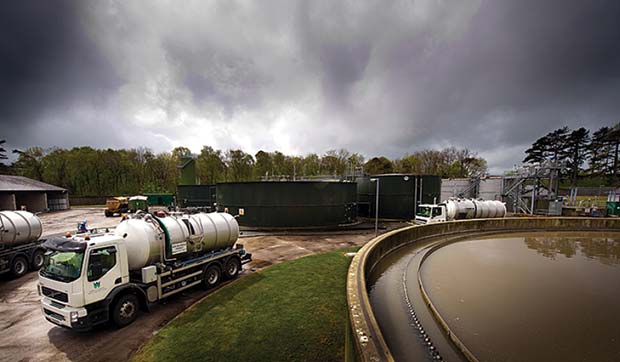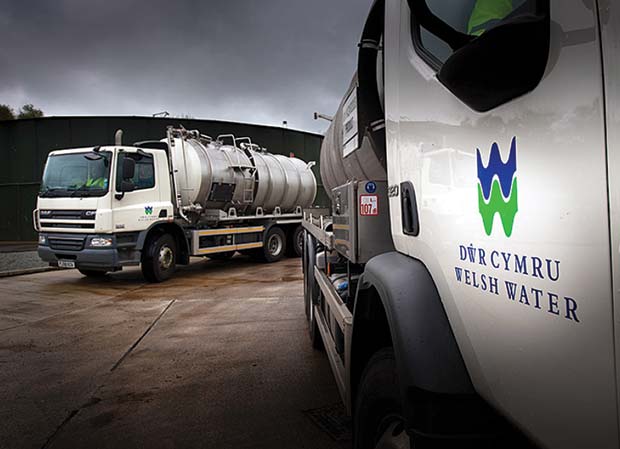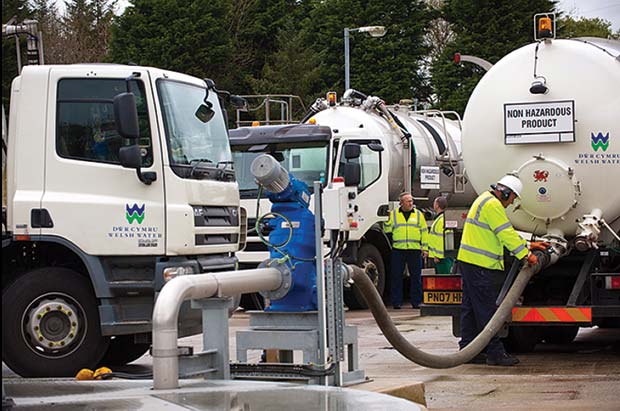Comprehensive management, routing, scheduling and ePOD solution is rolled out, improving visibility, tightening control and enhancing efficiency

A wide-ranging transport resource management project mounted jointly by VSc Solutions and MapMechanics for D?r Cymru Welsh Water is producing major savings and efficiency gains in the planning and scheduling of sludge movements between processing plants across Wales.
The package of measures includes VSc Solutions’ TranSend electronic proof of delivery (ePOD) system; a bespoke management and reporting suite developed by VSc; and the TruckStops vehicle routing and scheduling optimisation solution from MapMechanics.
Welsh Water provides water and sewerage services in north and south Wales and parts of England, and operates wastewater treatment works at no fewer than 880 sites of varying sizes. Sludge is collected regularly from these sites by specialised bulk tanker vehicles and transported to a number of larger sites.
The company runs a core fleet of 33 articulated and rigid tanker vehicles to handle this work. They are based at 23 strategic locations within the operating area, and rounds were planned in advance for a whole year’s operations, with visits ranging in frequency from twice a day to once every few months.

However, these fixed journeys did not always reflect actual operating requirements. For instance, if there was not enough sludge at a site to make up a full load, the driver would still make the collection, compromising efficiency.
Project manager Owain Jones explains, “One of the biggest problems was that drivers held a lot of the routing information in their heads and there was no easy way to tap into that information or alter their journeys.”
At the heart of the new system is a centralised planning and diary system developed by VSc.
Alongside this, the organisation used TruckStops to build a new “template” schedule of journeys for each site. This was based on historic data and driver feedback, and took account of restrictions on vehicle size or weight and any timing constraints at each location.
If possible, existing vehicles and drivers were kept on the same work as before, but TruckStops optimised the routes and call sequences, creating an improved “base plan” for the revised operation.

A major change from past practice is that the transport plan for the fleet is now varied week by week, and scheduled by TruckStops accordingly.
Key to this change was the introduction of VSc’s comprehensive sign-on-screen electronic data capture and proof of delivery system.
Details captured by drivers include arrival and departure times on site, load volumes and even the water content of the sludge they have loaded.
Using this up-to-date information, TruckStops is able to schedule for real-world demand in the week ahead.
“The project has involved a culture change for drivers,” admits Steve Farley, the organisation’s logistics manager, “but they have realised there are advantages for them.” One improvement is a requirement for drivers to obtain authorisation from their scheduler before agreeing to do ad hoc work on site. “They are much happier now they don’t have that responsibility, and we can monitor the cost of any unscheduled work and cross-charge it to the site in question.”
Initially the system was rolled out across south Wales, and now it is being extended to north Wales. According to Steve Farley, there are already indications that it is bringing the expected savings and efficiency improvements.
“We have reduced the cost of bought-in services significantly by using our own drivers more productively,” says Steve. “We have also reduced unnecessary collections from sites that need not be visited so frequently, and improved our vehicle fill rate significantly.”
By avoiding unnecessary repeat visits to sites, the organisation has improved its service to the sites, since the operation is now more reliable.
There have been many other benefits, too. For instance, the organisation can identify delays at sites, and can calculate the cost to serve each site more accurately than ever before.

Welsh Water’s Dave Lewis sums up: “The system is doing exactly what we wanted it to. We are reducing the cost of bought-in services, monitoring our internal costs much more closely, improving our efficiency and productivity, enhancing the service we provide to our sites, and keeping a much closer check on the treatment process.
“For the first time we have full visibility of the operation, and because we are capturing so much data in real time, we can run reports and analysis in finer detail than ever before – which allows us to manage the operation more proactively.”




Comments are closed.